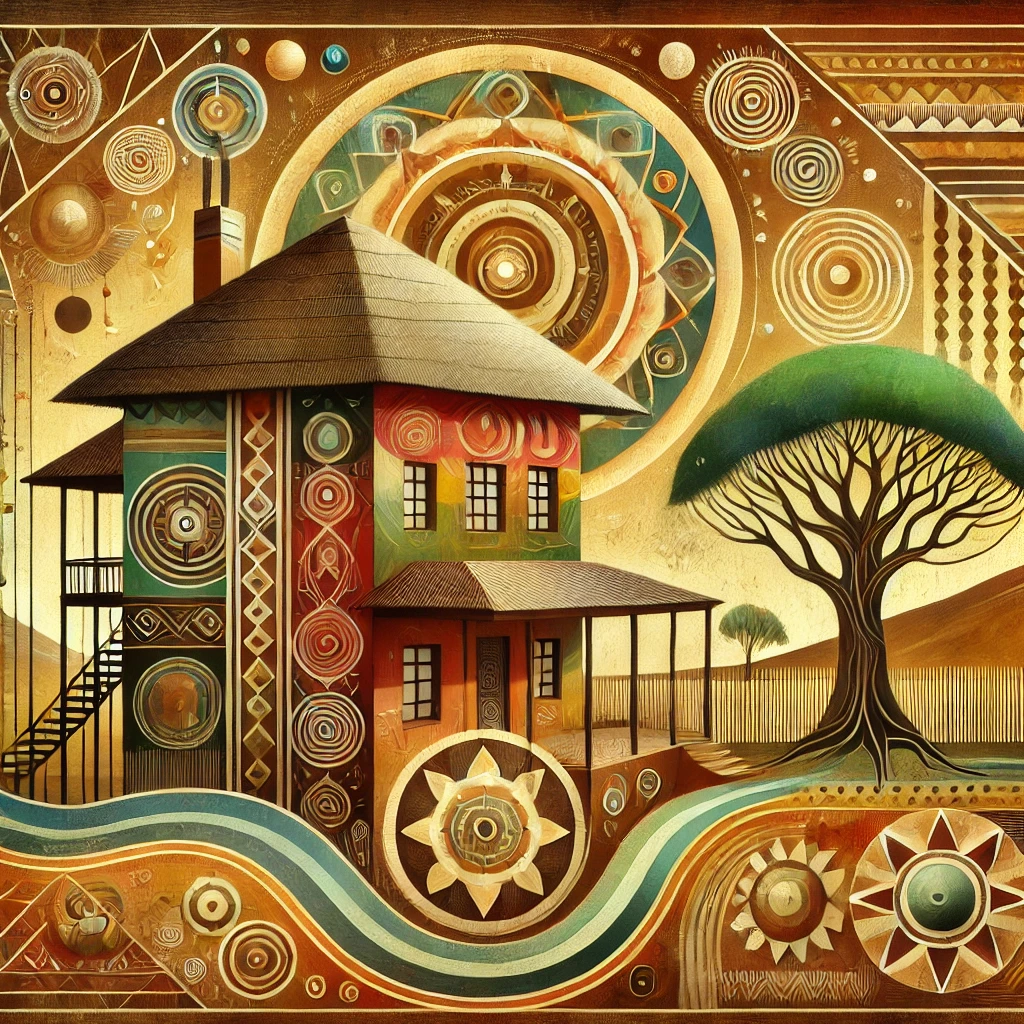Serer Philosophy

Place of Origin: West Africa (modern-day Senegal, The Gambia, and Mauritania)
Century of Origin: Ancient Era (Unknown Exact Date)
Overview of Serer Philosophy
Serer Philosophy is the spiritual and philosophical system of the Serer people of Senegal, The Gambia, and Mauritania. It integrates cosmology, ethics, and cultural traditions, focusing on the interconnectedness of the spiritual and physical realms, the importance of ancestry, and the cycles of life and death. At its core, Serer Philosophy seeks to guide individuals and communities in maintaining balance, honouring their heritage, and living in harmony with the natural and divine worlds.
Serer metaphysics centres on the belief that the universe is sustained by Roog (or Rog), the supreme creator, who governs all aspects of existence. Roog created the universe, setting into motion the cycles of life, death, and rebirth. The Serer recognise multiple dimensions of existence, including the spiritual realm of ancestors and the material world of the living. Ancestral spirits are considered intermediaries who guide and protect the living, maintaining a link between humans and Roog. This cosmology emphasises that all life is interconnected and governed by sacred forces.
Knowledge in Serer Philosophy is transmitted orally through griots (oral historians), elders, and spiritual leaders. This wisdom encompasses cosmological understanding, ethical principles, and historical narratives. The Serer people place great importance on observation of nature, particularly celestial movements, agricultural cycles, and environmental patterns. Sacred rituals and initiation ceremonies are also key methods for imparting knowledge, offering individuals insight into spiritual truths and their responsibilities within the community.
Ethics in Serer Philosophy are grounded in the concept of 'Jom,' which signifies dignity, honour, and moral integrity. Individuals are expected to live with respect for others, the environment, and the spiritual forces that sustain life. Ethical behaviour involves fulfilling communal responsibilities, caring for the land, and honouring one’s ancestors through rituals and ceremonies. Acts that disrupt harmony, such as dishonesty or greed, are considered violations of Jom and disrupt the balance of the universe.
The logic of Serer Philosophy is symbolic and relational, rooted in understanding the connections between humans, nature, and the divine. Proverbs, myths, and rituals are used to convey complex ideas and encourage reflection on life’s deeper meanings. For example, the cycles of planting and harvest are not just agricultural but are seen as metaphors for life’s rhythms and the need for balance. Serer logic prioritises harmony and the interdependence of all things, guiding decisions and actions to align with cosmic order.
Aesthetics in Serer Philosophy are deeply symbolic, reflecting spiritual truths and cultural identity. Art, music, dance, and architecture are infused with meaning, often celebrating the cycles of life, ancestry, and the divine. For example, ceremonial attire and jewellery incorporate motifs that represent cosmological ideas, such as the spirals symbolising eternity or unity. Drumming and chanting during rituals are not only artistic expressions but also spiritual acts that connect participants to Roog and their ancestors.
Serer Philosophy employs a holistic methodology that blends observation, ritual practice, storytelling, and communal learning. Griots play a vital role in preserving and transmitting knowledge, sharing oral histories that encompass ethical principles, cosmology, and cultural heritage. Initiation ceremonies, which mark significant life transitions, serve as structured educational processes, providing individuals with both practical and spiritual knowledge. This methodology ensures that wisdom is continuously passed down and adapted for new generations.
In Serer Philosophy, humans are viewed as spiritual beings connected to their ancestors, the living world, and future generations. This interconnectedness underscores the individual’s responsibility to live ethically and contribute to the community’s well-being. Each person is part of a sacred continuum that links the past, present, and future. Life is seen as a journey of self-discovery and service, where fulfilling one’s role honours Roog and the ancestors while ensuring harmony with the universe.
Leadership in Serer society is guided by spiritual principles, with leaders expected to embody wisdom, fairness, and humility. Decision-making often involves consultations with spiritual leaders and rituals to seek guidance from Roog and the ancestors. Governance is viewed as a sacred duty, emphasising accountability and service to the community. Leaders are expected to uphold the values of Jom and maintain harmony within society and with the divine order.
Serer Philosophy has deep roots in the ancient traditions of the Serer people, preserved through oral history, sacred sites, and rituals. Despite the influence of external religions, colonialism, and modernisation, the Serer have maintained their philosophical and cultural heritage. Key elements of Serer Philosophy, such as their cosmological understanding and ethical teachings, continue to guide their way of life and adapt to contemporary challenges.
Core themes in Serer Philosophy include the cycles of life, the sacred connection between humans and their ancestors, the balance between spiritual and material realms, and the importance of ethical living. It also explores the relationship between humans and the divine, encouraging individuals to honour their heritage, live with dignity, and maintain harmony with the universe.
Serer Philosophy is not attributed to individual philosophers but to the collective wisdom of griots, spiritual leaders, and elders. These figures serve as custodians of knowledge, ensuring its preservation and transmission through storytelling, rituals, and education. Their teachings continue to inspire and guide the Serer people in their spiritual and communal lives.



